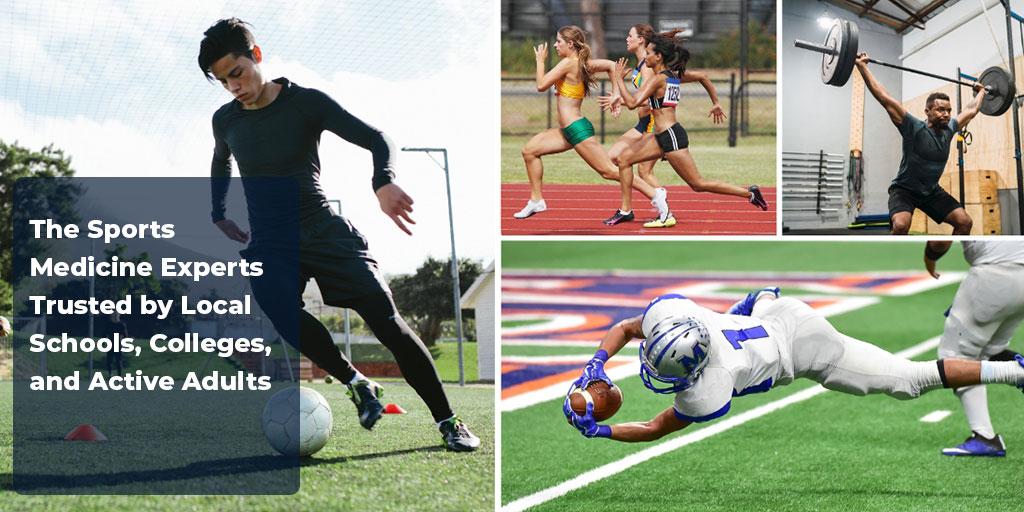Sports Medicine

Sports Medicine Care for All Types of Athletes in Hampton Roads
What is sports medicine? It is specialized care for injuries or conditions resulting from sports and physical activity. You don't have to be a professional athlete to need sports medicine. The sports medicine specialists at Tidewater Orthopaedics have advanced training to treat musculoskeletal issues commonly affecting recreational, student, and competitive athletes.
We provide comprehensive diagnosis, treatment, rehabilitation, and preventative services. Our doctors are team physicians for local high schools and colleges. We work closely with physical therapists, trainers, coaches, and other providers to optimize outcomes. We will see patients as young as 12 years old.
Whether you suffered an acute injury like an ACL tear or have chronic issues like shoulder instability, our experts develop customized treatment plans using cutting-edge techniques like arthroscopic surgery and biologics. We exhaust nonsurgical options first when possible. We aim to help athletes return to play safely and perform their best.
At Tidewater Orthopaedics, we care for all Hampton Roads athletes, from weekend warriors to varsity stars. Let our sports medicine specialists provide the solutions to get you off the sidelines. Call today to schedule your consultation.


Read More Patient Testimonials for Dr. Colin Kingston

Read More Patient Testimonials for Dr. Loel Payne

Read More Patient Reviews for Dr. Nicholas Sablan
ACL Tear
An ACL tear occurs when the ACL ligament connecting the femur and tibia becomes injured. It is often painful and causes the knee to feel unstable. An ACL tear most often occurs during athletics, but can also occur because of sudden stops, landing awkwardly, or trauma. Most often the patient will experience a popping sound at the moment the ACL tear occurs. Surgery and rehabilitation are commonly required.
Cubital Tunnel Syndrome
This condition is a compression injury to the ulnar nerve near the elbow. This is the nerve that produces a jolt when you bump your "funny bone."
Deep Vein Thrombosis (DVT)
This condition is a blood clot that forms in a vein deep inside the body. This type of clot most commonly develops in the legs. This condition is dangerous, because the clot can break free and travel through the bloodstream to the lungs.
Elbow Bursitis
This condition is an inflammation of the olecranon bursa, a fluid-filled sac between the skin and bones on the back of the elbow. It can cause pain and restrict motion of the elbow. The bursa may also become infected.
Labral Tear of the Hip (Acetabular Labrum Tear)
If your hip joint hurts, or if it catches or clicks when you move your leg, you may have a torn labrum. That's a rim of tissue that surrounds the hip's socket. It helps to deepen the socket and cushion the joint. A torn labrum can keep the hip joint from working smoothly.
Lateral Epicondylitis (Tennis Elbow)
This condition, commonly called tennis elbow, is an inflammation of the tendons that connect the muscles of the forearm to the elbow. The pain is primarily felt at the lateral epicondyle, the bony bump on the outer side of the elbow.
Specialists

Colin M. Kingston, M.D.
Read Bio
Loel Z. Payne, M.D.
Read Bio
Nicholas K. Sablan, M.D.
Read Bio
Benjamin Gensler, PA-C
Read Bio